¡Mil felicidades!
República Dominicana.
_________________________________________________________________________
Congratulations!
Dominican Republic.
Confederación Dominicana de Judo
realiza asistencia técnica a la
Asociación de la Provincia Monte Plata
Confederación Dominicana de Judo realiza actividades en el Dia Internacional de Jigoro Kano
 |
| Provincia Santo Domingo |
 |
| Provincia Monte Plata |
 |
| Autoridades civiles de la ciudad de Moca y miembros de la Condojudo |
 |
| Cathy Freeman, austaliana, medalla de oro 400 metros |
.jpg) |
| Marius Vizer y Jaime Casanova, vicepresidentes Federación Internacional de Judo representando a Europa y América, respectivamente |
Jaime Casanova Martínez
Email: infopju@gmail.com
_______________________________________________________
Santo Domingo, Dominican Republic.- The Sydney 2000 Olympic Games, officially known as the Games of the XXVII Olympiad, were held in Sydney, Australia, from September 15 to October 1, 2000.
On this occasion, 199 countries and 10,651 athletes in 28 sports competed in Sydney 2000.
This was the second time Australia has hosted the world's premier sporting event, having hosted the first in Melbourne in 1956.
It will host the third, according to the current International Olympic Committee allocation, in Beijing 2032.
For these Sydney Games, I served as the administrative director of the Dominican Republic delegation in my capacity as treasurer of the Dominican Olympic Committee.
I was also present as vice president of the International Judo Federation (IJF) and president of the Panamerican Judo Union (PJU).
On this occasion, the president of the Dominican Olympic Committee (COD) was Dr. José Joaquín Puello Herrera, and its secretary general was Luis Mejía Oviedo.
The architect Héctor Duval served as the Dominican delegation's Chief of Mission, performing a superb job of organizing and representing the country.
I have fond memories of the city of Sydney, its friendly people, its security, and its iconic sites like the Opera House, among other attractions.
In the overall medal table, Cuba led the way for Latin America, achieving ninth place with 11 gold medals, an equal number of silver medals, and seven bronze medals for a total of 29.
The United States took first place with 37 gold medals, 24 silver medals, and 32 bronze medals for 93 medals, followed by Russia in second place and China in an honorable third place.
In the activities I was assigned to participate in, I received a drawing from Mosman Public School student Isobel Minack with the theme "Welcome to Australia." He expressed his thoughts on what the drawing meant to him.
I am attaching a copy of the drawing, both sides of which I enjoyed in the 25th anniversary of the Sydney 2000 Games of the XXVII Olympiad, which I enjoyed with my son Jaime and my lifelong friend, Panamanian Miguel Vanegas.
Jaime Casanova Martínez
Email: infopju@gmail.com
_______________________________________
COI recuerda legado de Juegos Olímpicos
de Sídney 2000
Al celebrar la fecha, el ente rector destacó que las sedes de Sídney siguen albergando eventos mundiales, los espacios
verdes enriquecen la vida cotidiana y las tradiciones perduran rumbo a la preparación de Australia para Brisbane 2032.

Imagen de archivo de la sede del Comité Olímpico Internacional (COI) en Lausana, Suiza. (EFE/EPA/LAURENT GILLIERON)
Lausanne, 15 sep (Prensa Latina) El Comité Olímpico Internacional (COI) recordó hoy el legado deportivo de los Juegos de Sídney 2000, justo en el aniversario 25 de la apertura de la cita de Australia.
Al celebrar la fecha, el ente rector destacó que las sedes de Sídney siguen albergando eventos mundiales, los espacios verdes enriquecen la vida cotidiana y las tradiciones perduran rumbo a la preparación de Australia para Brisbane 2032.
En palabras del director de Impacto y Legado de los Juegos Olímpicos del COI, Arram Kim, Sídney 2000 infundió en los australianos un sentimiento de unidad que trascendió el ámbito deportivo, al compartir algo que aún se recuerda con orgullo.
La victoria de la atleta indígena australiana Cathy Freeman en los 400 metros ante un estadio lleno sigue siendo la imagen que define la cita bajo los cinco aros de Sídney, resaltó el sitio web del COI.
Otros recuerdos imborrables de la magna justa incluyen al nadador local Ian Thorpe (17 años), dueños de tres cetros dorados y dos subtítulos, y el cierre del velocista Michael Johnson, que selló su carrera olímpica con la defensa de su corona en los 400 metros.
A nivel competitivo, Estados Unidos lideró el evento con 37 preseas de oro, 24 de plata y 32 de bronce, por delante de Rusia (32-28-29), China (28-16-14), Australia (16-25-17) y Alemania (13-17-26), que ocuparon en ese orden el top cinco.
Por Latinoamérica, Cuba resultó lo más destacado en la novena posición con 11 títulos, 11 medallas de plata y siete de bronce, con actuaciones destacadas como el tercer cetro consecutivo de la selección femenina de voleibol y del boxeador Félix Savón.
Fuera del ámbito deportivo, el Parque Olímpico transformó terrenos antes contaminados de la bahía de Homebush en un distrito de humedales, viviendas y parques, donde miles de personas se reúnen a diario para practicar deporte, estudiar y disfrutar del ocio.
Sus sedes siguen albergando fútbol, rugby, críquet y conciertos, mientras los Centros Acuáticos y de Atletismo equilibran la competición internacional con el uso comunitario.
En Penrith, el Centro de Regatas y el Estadio de Aguas Bravas, construidos para piragüismo y remo en el año 2000, continúan lugares fijos del calendario mundial
De acuerdo con el informe, el 25 aniversario se conmemora con actividades escolares y comunitarias; en tanto, la Antorcha Olímpica de Sídney 2000 recorre parte de la ruta original de relevos para acercar la historia de los Juegos a una nueva generación camino a Brisbane 2032.
rc/yma
La ACD celebra Gala de Premiación a la Excelencia

Marileidy Paulino fue distinguida como la Atleta del Año, en tanto que Vian y Ricardo Rodríguez recibieron el galardón como Cronistas del Año en los premios ACD
Pedro Briceño.
SANTO DOMINGO. Como en la mayoría de sus competencias, Marileidy Paulino volvió “ a servirse con la cuchara más grande” al ser distinguida como la Atleta del Año en la Gala de la Excelencia ACD, que realiza la benemérita institución deportiva.
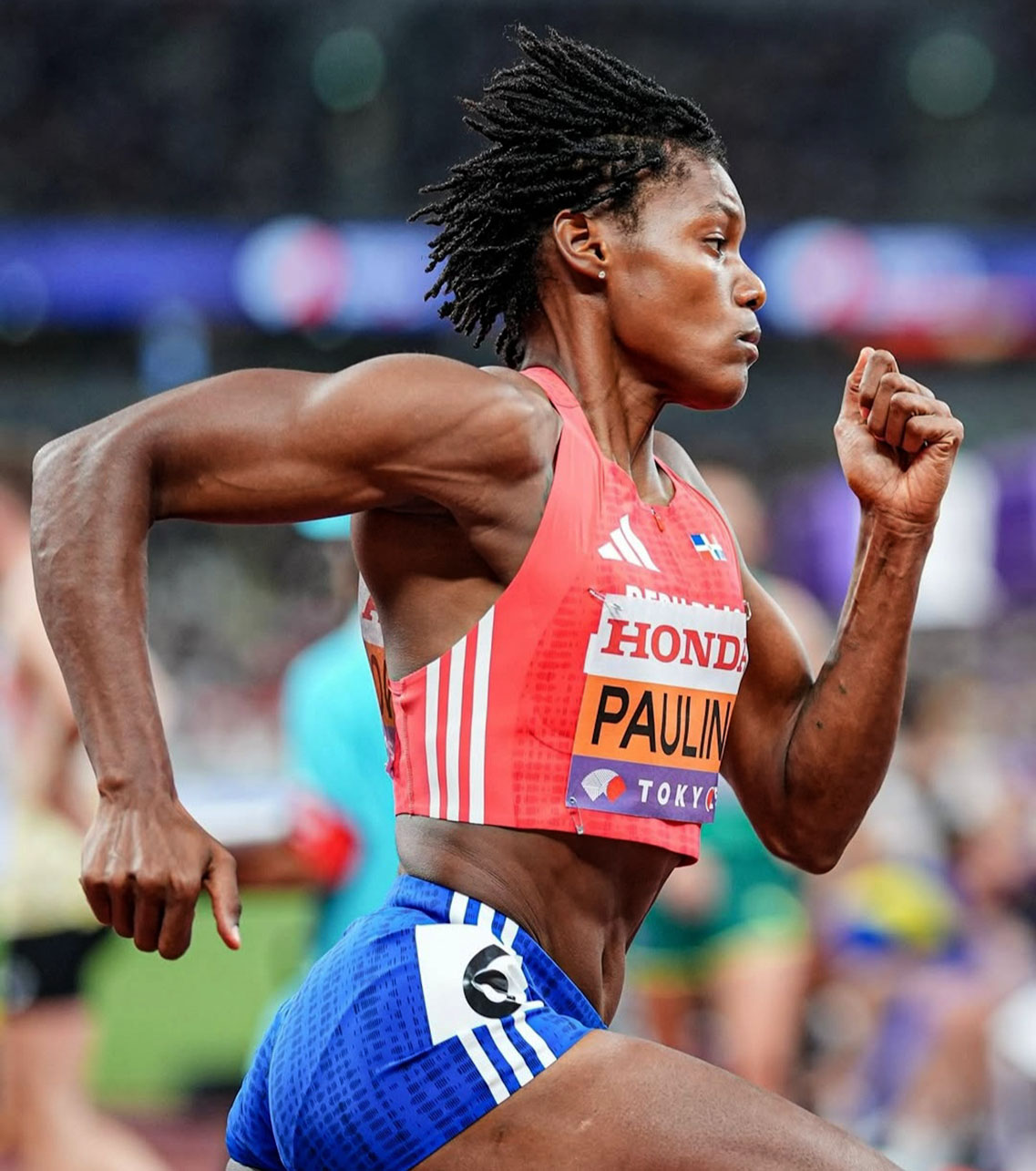
Junto a la atleta, el binomio que integran Vian Araujo y Ricardo Rodríguez, quienes han hecho de sus programas Abriendo Sports y Abriendo el Podcast, un gran referente del periodismo radial y de Youtube, fueron merecedores de la más elevada distinción que otorga la entidad a la Excelencia acedeísta.

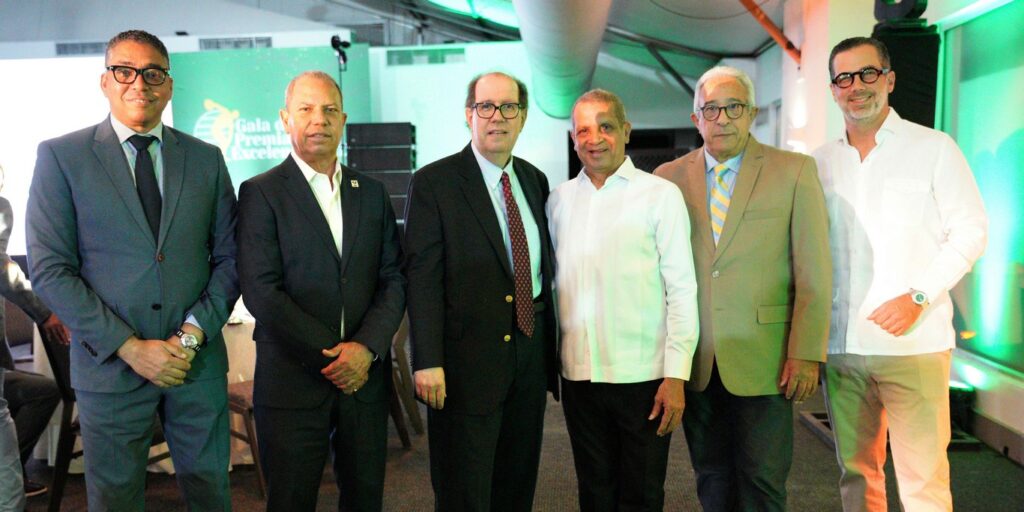
Mientras Marileidy conquistó por segunda vez el premio de la mejor atleta en las premiaciones, el equipo de Abriendo Sports que lideran Vian y Ricardo agregan el de este lunes al recibido en el 2023. Olga Torres recibió los galardones a nombre de Marileidy, quien se encuentra en el Mundial de Tokio.

Ambos de manera individual han alcanzado dos galardones de manera distintas. Unen sus estatuillas a las logradas en los premios soberanos (2024 y 25) como mejores podcats del año.

“Gracias a la ACD por reconocer la labor que cada día realizamos al frente de Abriendo Sports y Abriendo el Podcast, con todo el amor y corazón tratamos de brindarle lo mejor al público en general”, señaló Araujo, tras recibir los dos premios.

Ricardo estuvo ausente por encontrarse fuera del país.
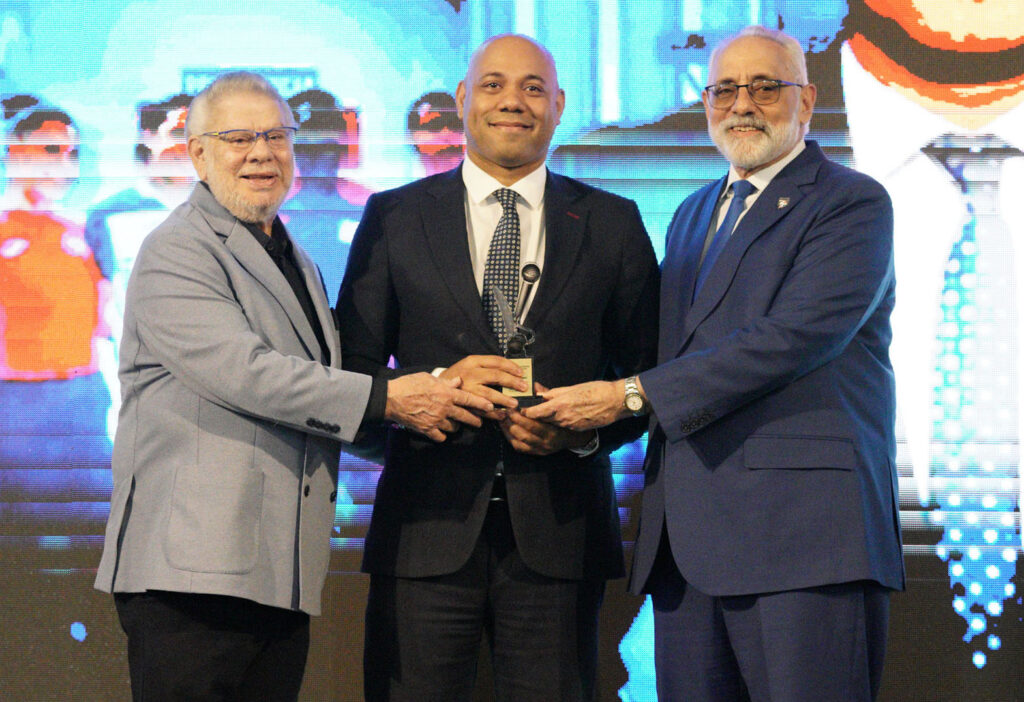
Araujo destacó que él y Ricardo son los principales rostros de los espacios, pero que el mismo está integrado por 22 personas, quienes realizan grandes aportes para que el público reciba un producto lo más completo posible, con informaciones actualizadas.
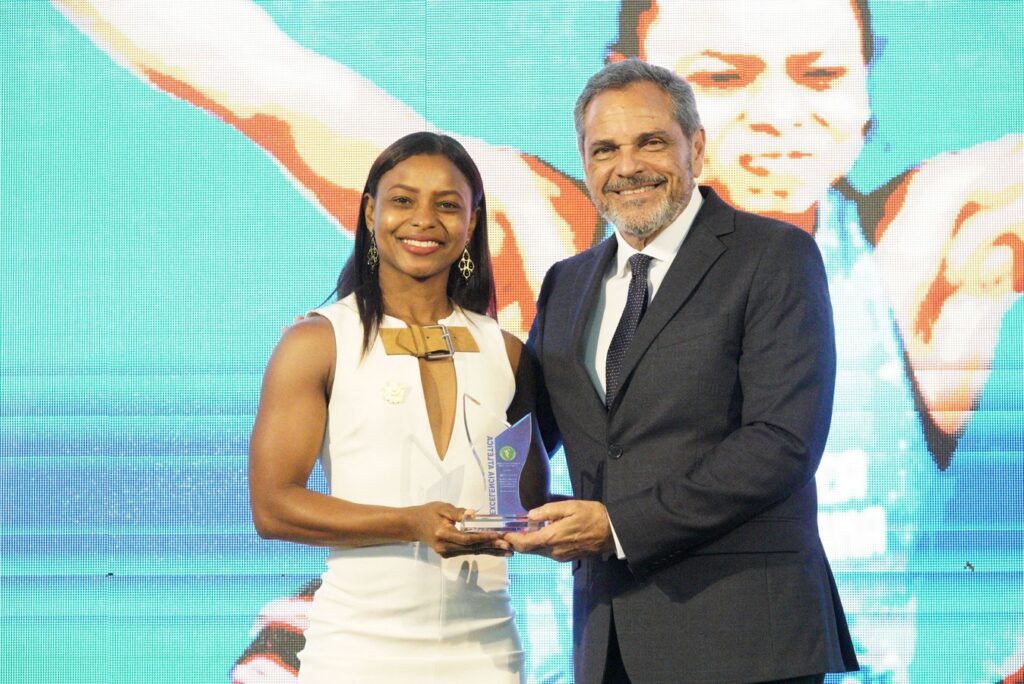
Otros cronistas reconocidos
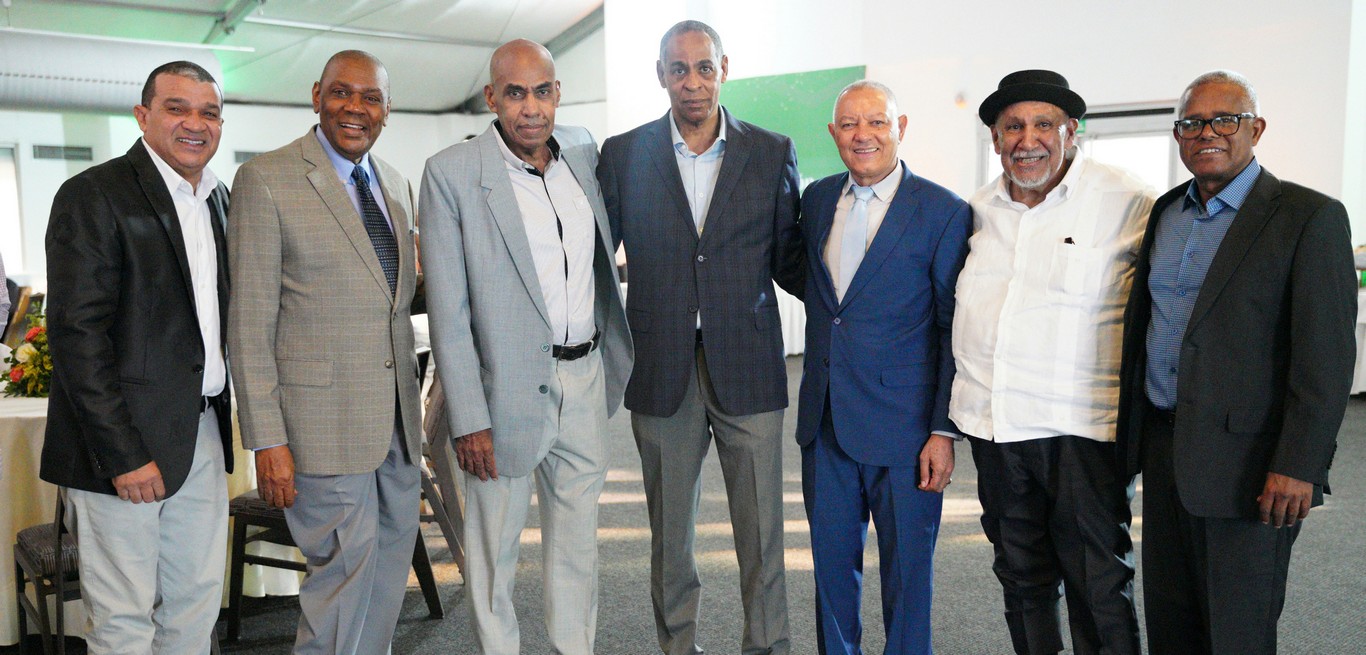
Junto a ambos, otros miembros de la crónica deportiva que fueron reconocidos fueron Nathanael Pérez Nero, editor deportivo del Diario Libre y quien ha sido galardonado varias veces, Leonardo Reyes, autor del libro Historia Dominicana de las Olímpiadas, impreso que es un amplio compendio desde la primera participación del país en estos certámenes en 1946.
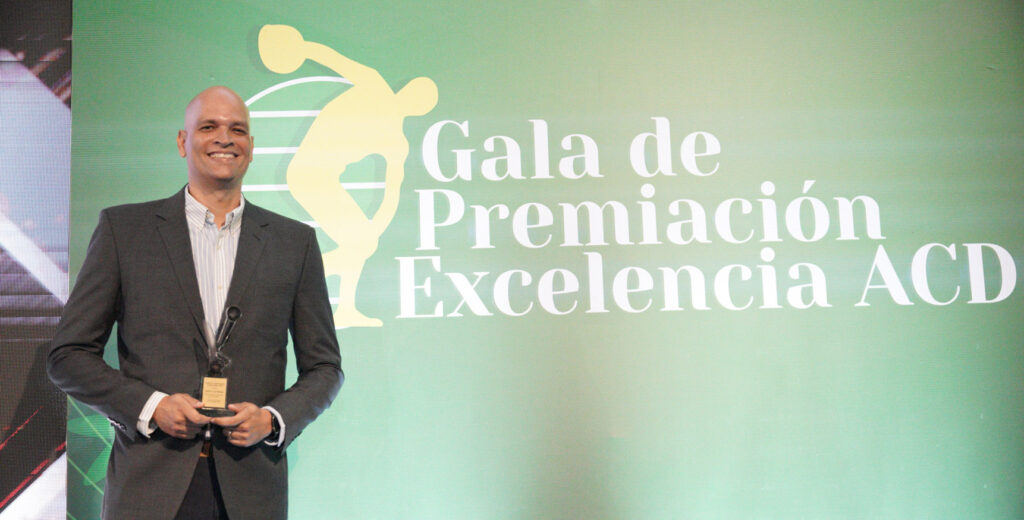
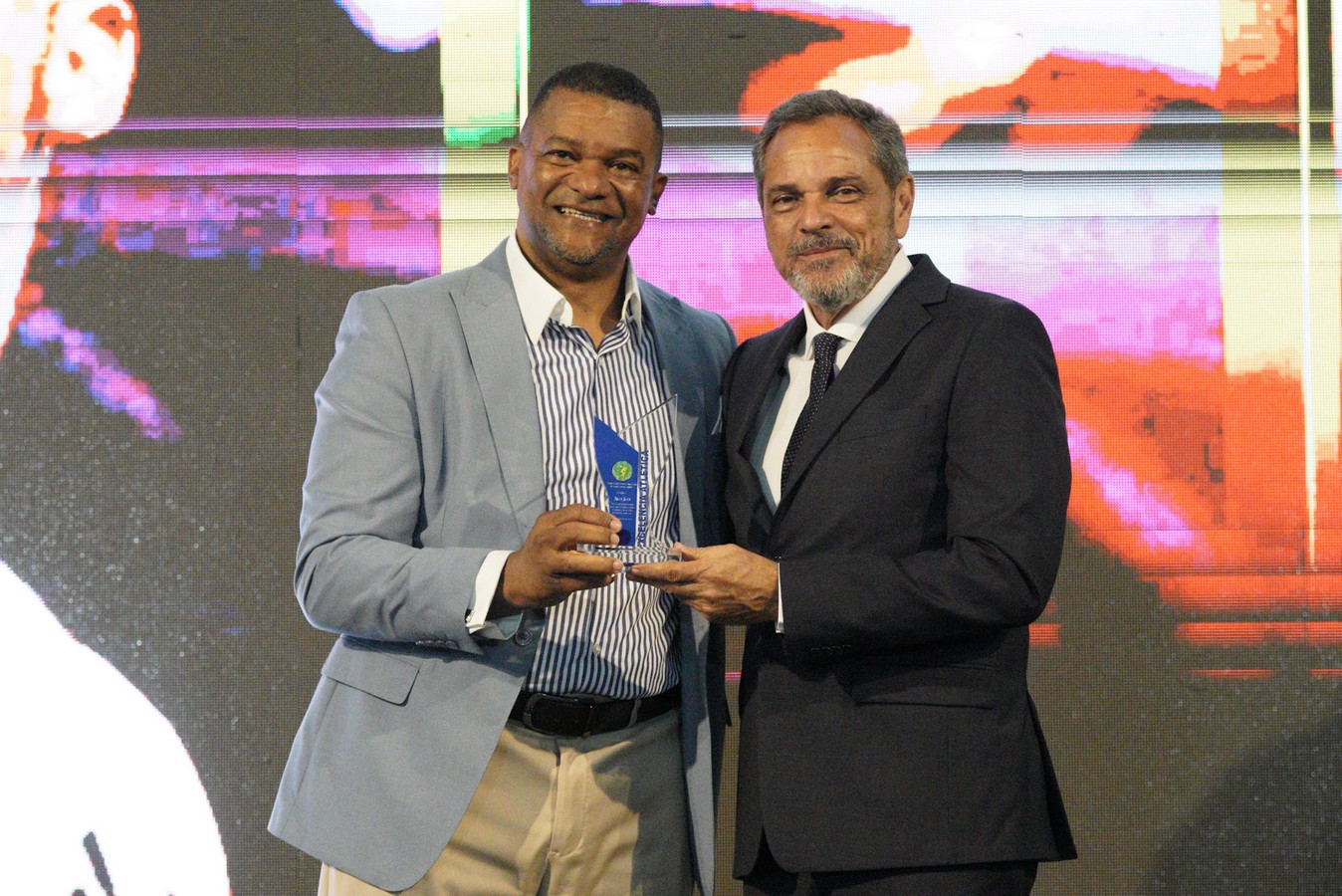
También, Yancen Pujols y Manuel Reyes, comunicadores que se destacan en los contenidos multimedias que realizan, así como en otras plataformas.

Pujols ha sido un perenne reconocido por la ACD, mientras que para el popular Marega es su primera estatuilla de la institución en la profesión que inició en el 2009.

Otros galardonados fueron Satosky Terrero, Director de Comunicaciones de Lidom y de Relaciones Públicas en el Ministerio de Deportes, Sussy Jiménez, quien fue merecedora del premio Magda Facundo a la cronista femenina de más sobresaliente desempeño.
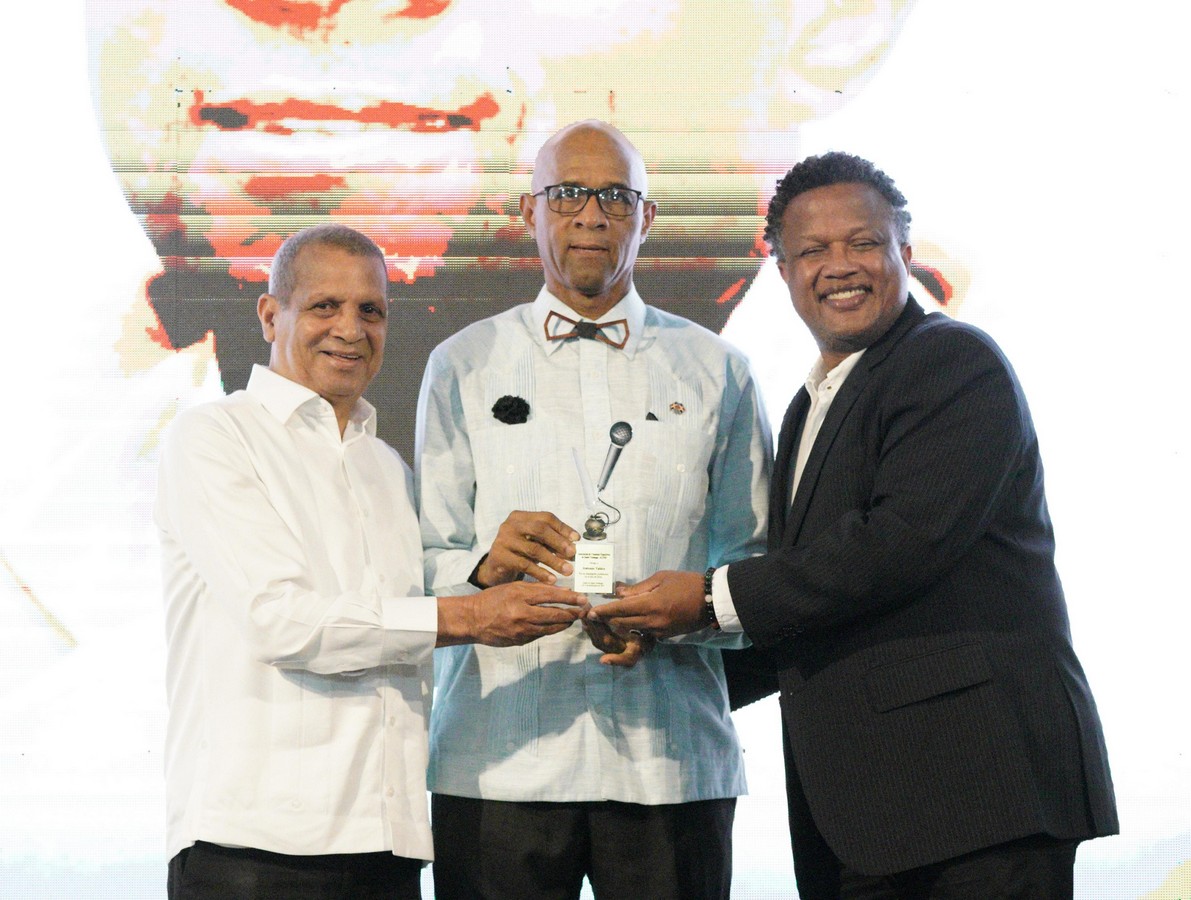
Melvin José Bejarán por su extensa trayectoria en las direcciones de comunicaciones de varias entidades, también Antonio Valdez, veterano periodista, a quien se le reconoció su labor consistente como periodista e historiador de la mayoría de las disciplinas deportivas.

Otros atletas galardonados.
Junto a Marileidy recibieron distinciones por su brillante desempeño durante el 2024, Beatriz Pirón, la laureada pesista, monarca en los 48 kilos, Juan Soto, pelotero, cuyo premio fue recibido por su padre Juan José Soto.
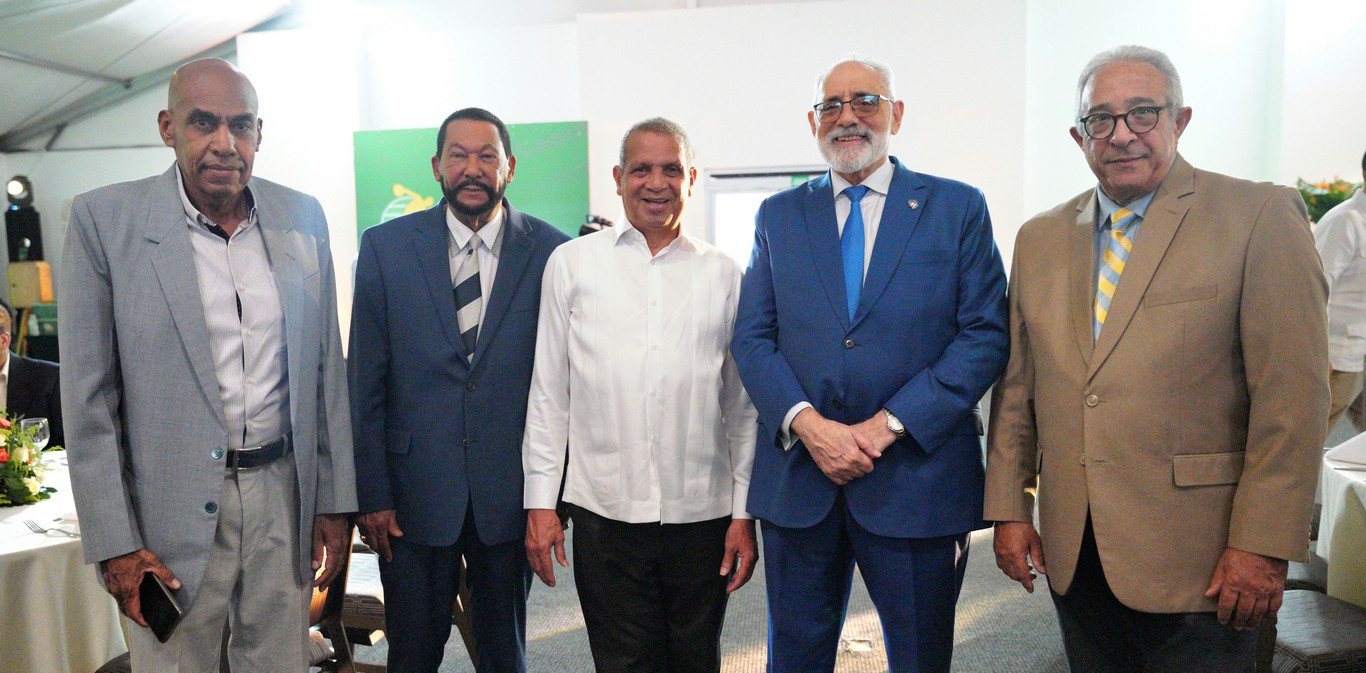
Otros fueron los boxeadores Cristian Pinales y Junior Alcántara, medallistas de bronce en los pasados Juegos Olímpicos de Tokio, Andrés Feliz, Alexander Ogando.

Los reconocidos
Los comunicadores Jorge Rolando Bauger, Radhamés González, Bienvenido Carmona, así como Don Felipe Vicini.

Bauger ha escrito por máss de 30 años la Columna Fútbol Solo Fútbol, en el periódico El nacional y gradeció a su editor, Leo Corporán por la oportunidad que le brindó hace tres décadas.
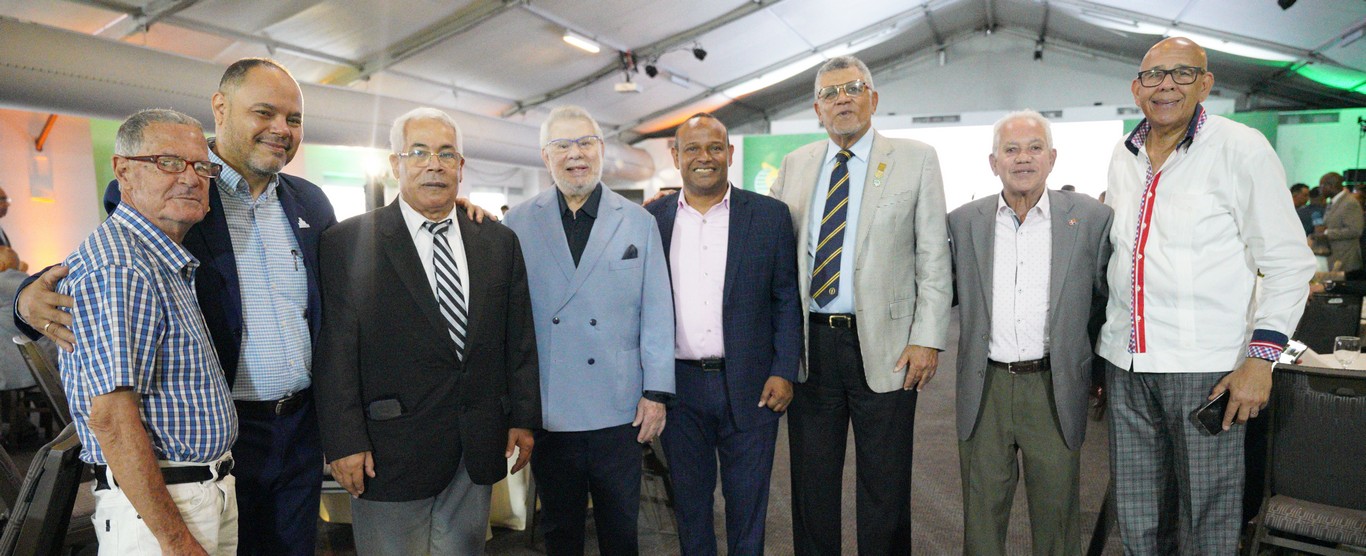
González fue reconocido en la fecha en que festejaba su cumpleaños 73 y recordó que quizás no pudo nacer, pues hubo que practicarle una cesarea de urgencia a su madre Flerida.

Hizo alardes de su gran memoria tras recordar los equipos que salían al terreno de juego en la Serie Mundial de 1969 entre Mets y Orioles.

Se crió escuchando las voces de Buc Canel, Felio Ramírez, Félix Acosta Núñez, Billy Berroa, Lilín Diaz entre otros.

Carmona compartió tres mandamientos que debe tener el periodista, dudar siempre, investigar siempre y no dejarse llevar 100 por ciento de la percepción, pues es ambigua y llevar a interpretaciones erróneas.

Mientras que Vicini, presidente de Creso, destacó que esa entidad solo forma parte de una mesa de cuatro patas que integran Creso, Miderec, el COD y los periodistas, quienes resaltan los desempeños de los atletas.

El acto fue guiado de manera magistral por la periodista Paloma Almonte. Mientras que Sexappeal puso el ambiente festivo con un recorrido de sus salsas más emblemáticas.

Américo Celado, a nombre del comité ejecutivo agradeció a las entidades que hicieron posible la celebración de la Gala de la ACD.

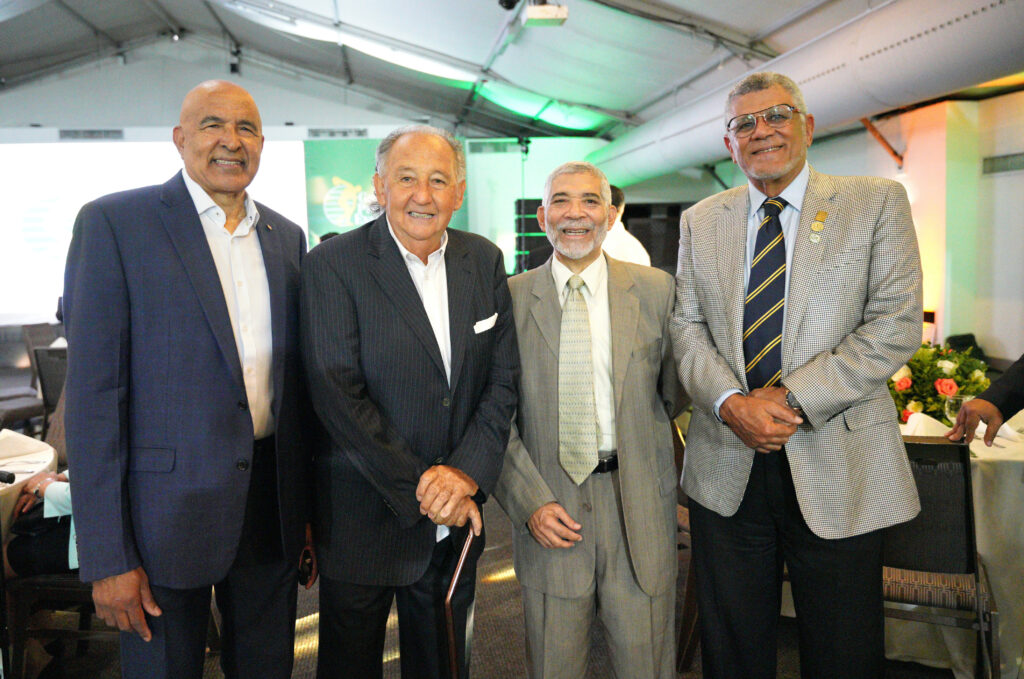
Figuras del deporte que asistieron estuvieron, el ministro de Deportes, Kelvin Cruz, Vitelio Mejía Ortiz, presidente de Lidom, Luis Mejía Oviedo, presidente de Centro Caribe Sports, Junior Noboa, Comisionado Nacional de Béisbol.
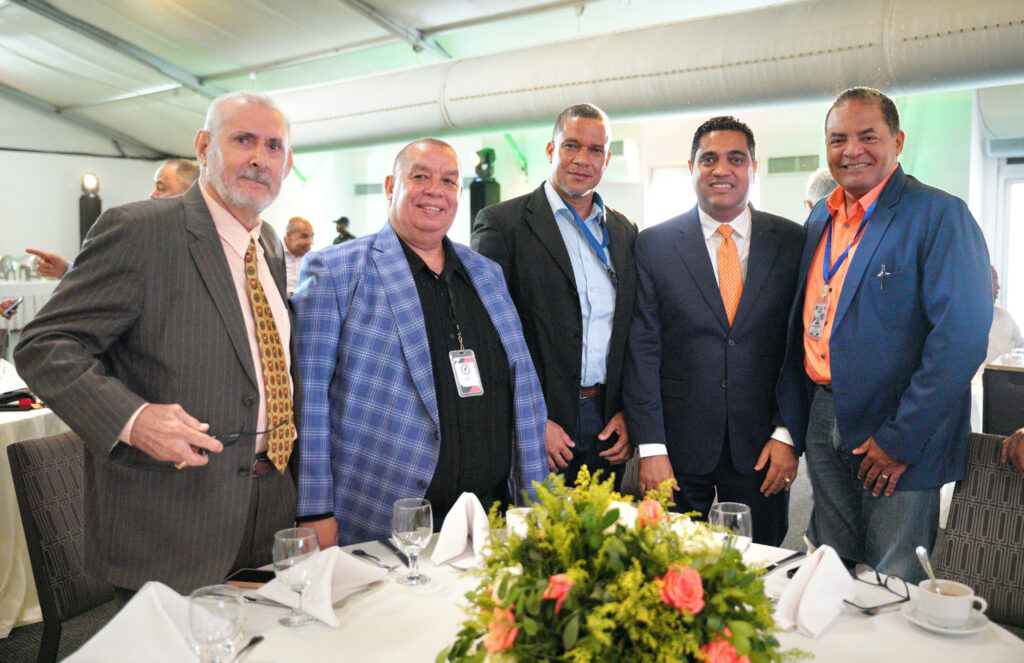
Garibaldy Bautista, presidente del COD, Dionisio Guzmán, presidente del Comité Permanente del Pabellón de la Fama, los inmortales Rolando Sebelén, Eduardo Gómez, Iván Mieses, así como presidentes de varias federaciones deportivas.